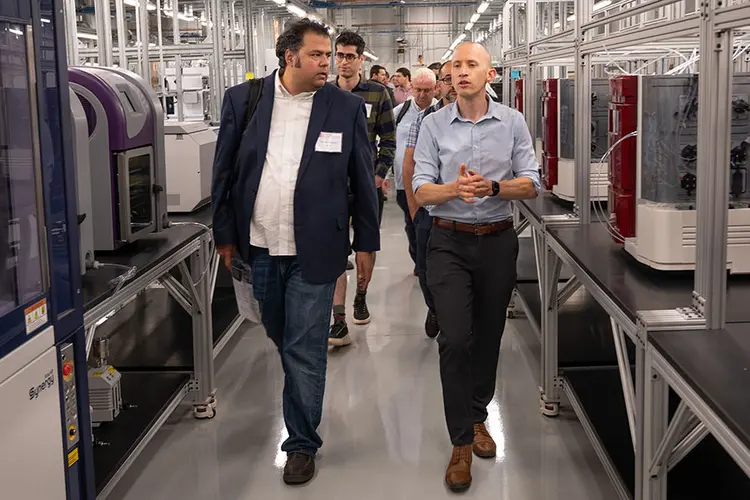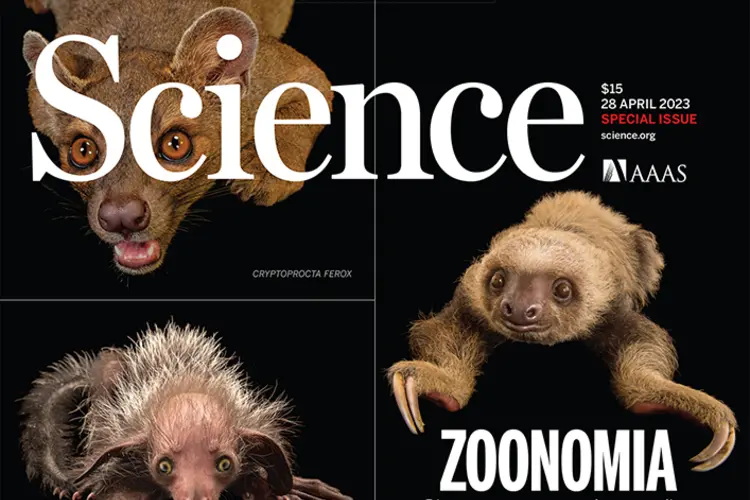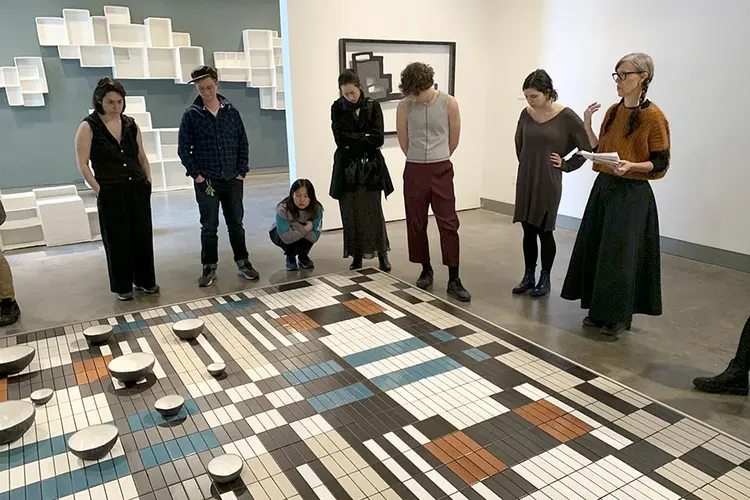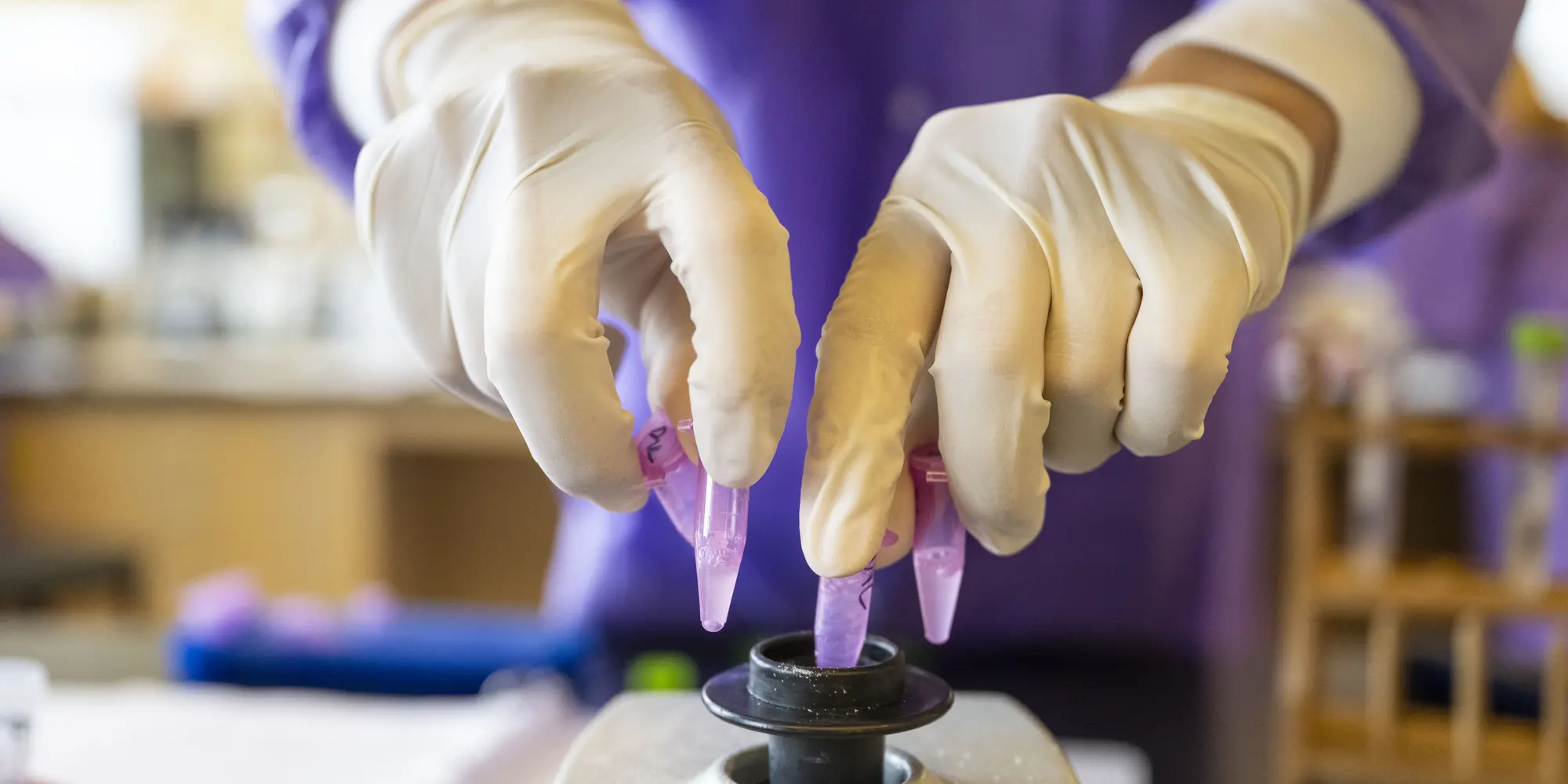
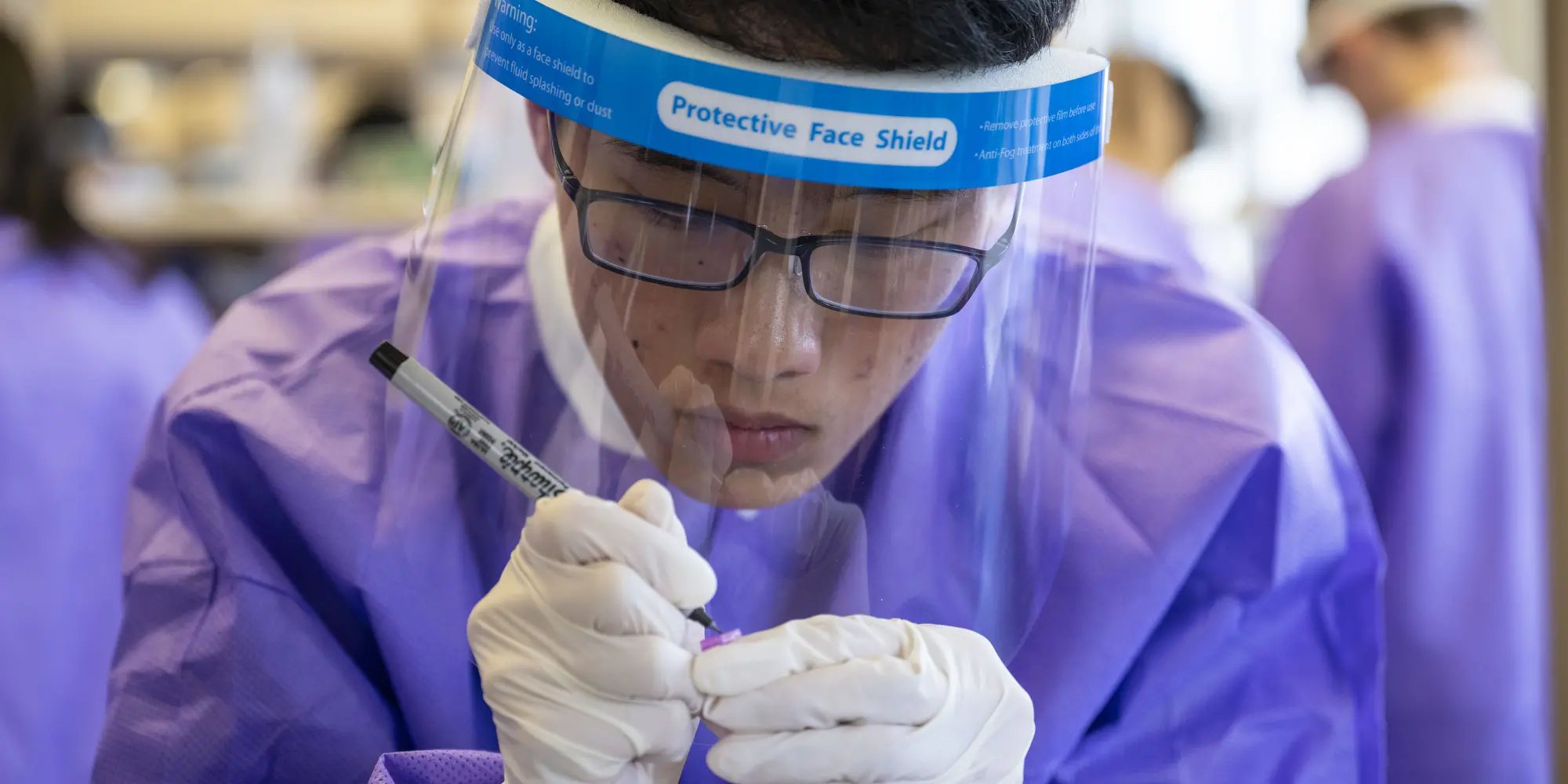

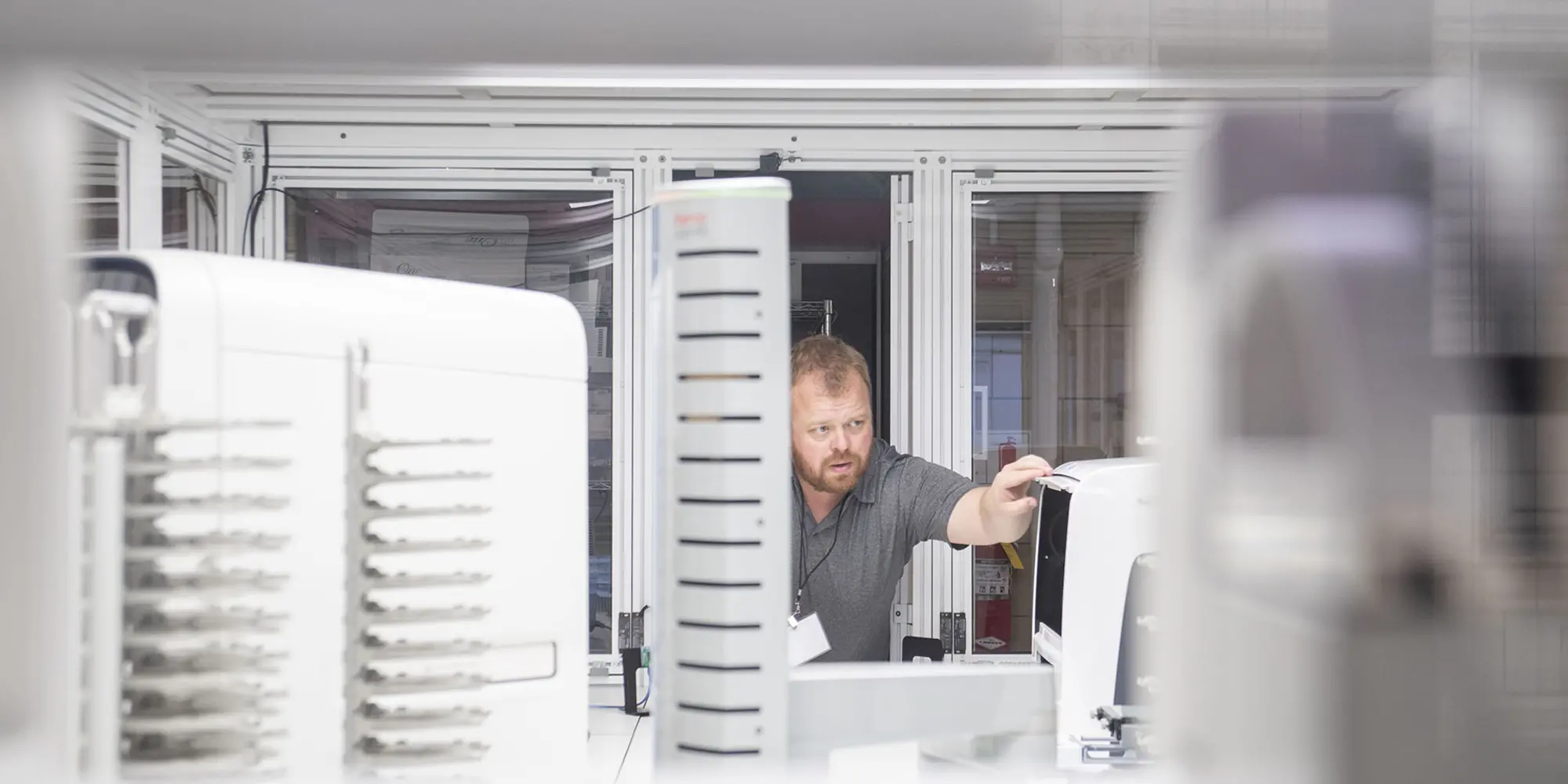
Carnegie Mellon Trustee Ray Lane and Stephanie Lane Invest $25 Million in CMU's Computational Biology Department
Gift to support endowment, new facility for cutting-edge department
Media Inquiries
Carnegie Mellon University Trustee Ray Lane(opens in new window) and his wife, Stephanie, have invested $25 million in support of the university’s boundary-breaking Computational Biology Department(opens in new window). The gift will establish an endowment to support the program’s strategic priorities and provide the funding for its future home in the new Richard King Mellon Hall of Sciences(opens in new window).
Computational biology is an interdisciplinary field that utilizes algorithms, data and computer models to increase our understanding of life in all its forms as well as develop tools to diagnose and treat disease. At Carnegie Mellon, the department is home to faculty spanning traditional biological sciences(opens in new window), computer science(opens in new window), and statistics and data science(opens in new window).
The Lanes are long-term supporters of CMU whose philanthropy played a key role in elevating computational biology to a department. Today, this department now ranks among the top three programs in the nation and is regarded as a global leader in the fields of bioinformatics, machine learning for biomedicine, interdisciplinary systems biology, automated science, genetic sequencing and more.
In recognition of the couple’s significant role in shaping computational biology at Carnegie Mellon, the university will name the department the Ray and Stephanie Lane Computational Biology Department. This is the first named academic department at CMU.
“Ray and Stephanie Lane have been passionate advocates for the power and possibilities of computational biology since the department’s formation,” said CMU President Farnam Jahanian(opens in new window). “With their support, our researchers are making life-changing discoveries and creating lifesaving treatments. I am deeply grateful for their investment in Carnegie Mellon University.”
The Lanes made their initial investment in computational biology at CMU to establish the Ray and Stephanie Lane Professorship in Computational Biology, the Ray and Stephanie Lane Post-Doctoral Program in Computational Biology and the Raymond Lane Fellowship in Computational Biology. To date, the Lanes’ generosity has supported computational biology faculty, post-doctoral researchers, and more than 20 fellowships for graduate students. The couple have also provided gifts for a computational biology high school program, computer science labs and other initiatives across Carnegie Mellon.
“Ray and Stephanie Lane have been passionate advocates for the power and possibilities of computational biology since the department’s formation." — Farnam Jahanian
“From our first understanding of this striking and developing field, Stephanie and I have been excited by its promise to make breakthroughs that open new pathways into the unknown, advance medical research and cure diseases that impact people and families across the planet,” Ray Lane said. “To be affiliated with this critically important department has been gratifying. Watching the progress it has made in the past few years, including the real-world impacts of its discoveries, has been incredibly fulfilling, and we look forward to witnessing all that it will achieve in the years ahead.”
The new endowed fund, announced today, will enable the Computational Biology Department to accelerate talent recruitment and retention and continue to evolve its innovative programming. The gift will also support the construction of the department’s new home in the Richard King Mellon Hall of Sciences alongside other Mellon College of Science(opens in new window) and School of Computer Science(opens in new window) departments as well as the university’s Institute for Contemporary Art(opens in new window). Construction on Forbes Avenue is expected to begin next year, and the building is expected to open in 2027.
“Computational biology represents a dynamic and rapidly evolving field of study that is part of a revolution of scientific discovery fueled in Carnegie Mellon’s unique culture of collaboration across disciplinary boundaries,” said Martial Hebert(opens in new window), dean of the School of Computer Science. “Ray and Stephanie Lane have made possible the growth and maturation of the program through their foundational support, and we envision a future of tremendous impact, knowing they will continue to be our champions.”
Russell Schwartz(opens in new window), department head and professor in the Ray and Stephanie Lane Computational Biology Department, and professor in the Department of Biological Sciences, added, “Ray and Stephanie Lane’s phenomenal support of the department over these many years has meant so much to our entire community of students, faculty and staff, helping to develop both our program and an entire generation of leaders within the field. We are proud that their name will continue to be affiliated with our work and inspired to employ the extraordinary resources they have provided for the betterment of our planet and humanity.”
A transformational tech leader, Ray Lane began his career at IBM in the 1960s. He is credited with turning around Oracle in the 1990s as its president and chief operating officer and later served as executive chairman at Hewlett-Packard and managing partner at Kleiner Perkins. Today, he serves as the managing partner of GreatPoint Ventures, a San Francisco-based venture capital firm, and has earned the David Packard Medal of Achievement Award, bestowed by the California Technology Council.
Ray Lane has served on CMU’s Board of Trustees(opens in new window) for three decades, including chairing the board from 2009 to 2015. He and Stephanie have volunteered for multiple advisory committees and remain active in engaging alumni and parents on behalf of the university.
The Lanes’ commitment is the latest transformational gift toward the Make Possible(opens in new window) campaign. CMU’s generous community of more than 63,000 donors has given more than $2.2 billion to date for critical strategic initiatives, including capital projects like the Hall of Sciences, initiatives across its seven colleges and schools, and endowment support that fuels the work and impact of its exceptional students, faculty and staff.

